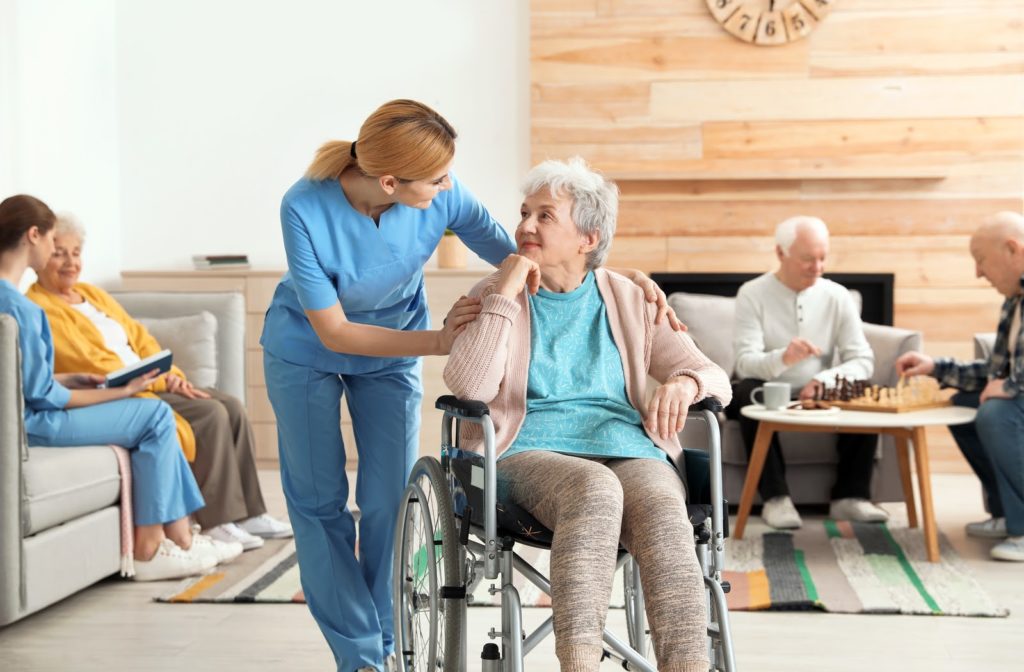The Significance of a Comprehensive Program of Treatment in Assisted Living Setups
In assisted living settings, the application of a thorough program of treatment is necessary for resolving the multifaceted needs of locals. By prioritizing individualized care plans and involving families in the procedure, these programs can substantially improve health end results and high quality of life.
Recognizing Comprehensive Care Programs
As helped living facilities continue to progress, understanding extensive treatment programs comes to be important for both citizens and their family members. Comprehensive care programs are developed to attend to a vast array of needs for individuals living in aided living settings, ensuring that each resident receives tailored support that shows their special wellness problems and way of living preferences.

Furthermore, extensive care programs emphasize control amongst various service providers, ensuring smooth interaction between caregivers, clinical employees, and member of the family. This incorporated technique not only enhances the top quality of treatment but additionally promotes a supportive area atmosphere. Families play an integral duty in this process, participating in treatment planning and recurring discussions to ensure that the homeowner's requirements are continually fulfilled. Comprehending these programs is vital for making notified decisions concerning care alternatives and optimizing the quality of life for homeowners in assisted living facilities.
Benefits for Citizens

(Dementia Care Charlotte)One main benefit of detailed treatment is the improvement in health and wellness outcomes. Routine surveillance and coordinated treatment help in the early detection and administration of persistent problems, decreasing hospital stays and emergency situation interventions. Moreover, homeowners gain from improved social involvement, as organized activities and programs promote a feeling of area, fighting feelings of seclusion and loneliness.
Additionally, citizens experience raised tranquility of mind, recognizing that specialist assistance is conveniently offered must they need help. This guarantee enables them to focus on enjoying their daily activities and keeping purposeful partnerships.
Function of Caregivers
Caregivers play a critical role in the health of homeowners in assisted living centers, making certain that their requirements are met compassion and knowledge. They act as the primary factor of get in touch with for citizens, offering important support in day-to-day activities such as bathing, clothing, and drug administration. Their presence not just advertises physical health but additionally improves emotional and social health by promoting relationships improved depend on and understanding.
Along with sustaining daily living jobs, caregivers contribute in keeping an eye on modifications in residents' wellness and behavior. They are educated to identify refined signs of distress or decrease, enabling prompt interventions that can protect against issues. Their knowledge of each homeowner's distinct background and preferences permits them to provide personalized care, Dementia Care Charlotte enhancing the general high quality of life.
Moreover, caregivers work as advocates for locals, connecting their needs and choices to other health care specialists and member of the family. This advocacy is vital in creating a holistic care setting that respects the self-respect and freedom of each individual. Eventually, the devotion and skill of caregivers are crucial components of a detailed program of treatment, underpinning the success of assisted living settings.
Customizing Care Program
While every resident in assisted living has distinct requirements and choices, customizing care strategies is important to delivering efficient and tailored assistance. A one-size-fits-all method to care can ignore essential aspects of individual wellness, potentially causing suboptimal results. Memory Care. A complete analysis of each local's health and wellness standing, individual history, and lifestyle selections is extremely important in developing tailored care strategies.
The personalization process involves collaboration among healthcare professionals, caretakers, and household participants. By including input from all stakeholders, treatment strategies can attend to not only medical needs but additionally psychological and social aspects that add to general lifestyle. Regular testimonials and updates to these strategies make sure that they stay relevant as residents' problems and choices develop in time.
(Dementia Care Charlotte)Additionally, personalized care plans promote a sense of dignity and autonomy among citizens, fostering an environment where they feel valued and respected. This customized technique not only improves the efficiency of care but also strengthens the relationship between caretakers and locals, developing a supportive neighborhood environment. Ultimately, purchasing customized care planning is a cornerstone of giving high-quality assisted living solutions that fulfill the varied requirements of locals.
Enhancing Community Engagement
Building on the structure of tailored treatment plans, enhancing area involvement is a crucial aspect of improving the total experience for homeowners in assisted living (Memory Care). Energetic engagement in neighborhood activities promotes social connections, battles sensations of seclusion, and adds to emotional health. Helping with possibilities for locals to participate in team activities, such as art courses, horticulture, and exercise sessions, develops an inclusive environment that promotes interaction and cooperation
Furthermore, integrating citizens into the more comprehensive neighborhood through collaborations with local organizations can offer enhancing experiences, such as volunteering and going to cultural occasions. This not only assists residents really feel valued but likewise strengthens connections with the surrounding community, enhancing their sense of belonging.
Additionally, motivating family members involvement in neighborhood tasks is essential. Assisted Living. Member of the family can function as essential support group, helping to bridge the gap in between citizens and the community. Normal household occasions and open online forums for conversation foster transparency and collaboration, making sure that the care setting stays responsive to the needs of all stakeholders
Verdict
In conclusion, comprehensive treatment programs in assisted living settings play a critical role in optimizing homeowners' health. The involvement of families in treatment preparation enhances assistance networks, cultivating a sensible and independent living atmosphere.